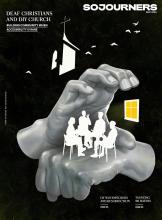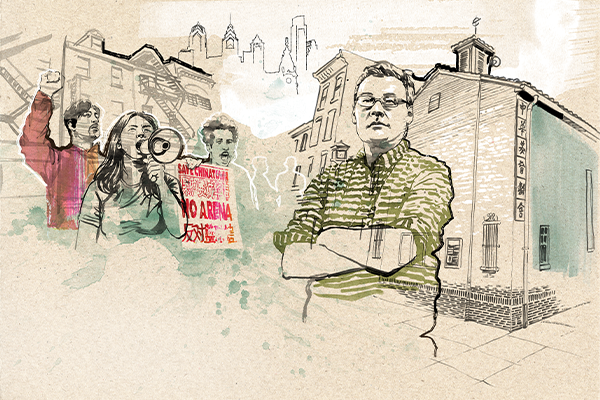If you drove down Filbert Street in Center City Philadelphia in February 2025, you might notice a few things. The street is not very wide. There’s a train station. And a large, boarded-up building, surrounded by fencing—it used to be a Greyhound Bus terminal. A sign on a pedestrian walkway says “Fashion District.”
Soon, you’d see an “All Traffic Must Turn Left” sign. And since you are traffic, you turn left — and quickly realize you’re in Chinatown. Make another left to Arch Street, and you’ll find Chinese characters on almost every storefront, even on “The Bank of Princeton.” On nearby Race Street, there’s a historical marker that reads:
Philadelphia Chinatown
Founded in the 1870s by Chinese immigrants, it is the only “Chinatown” in Pennsylvania. This unique neighborhood includes businesses and residences owned by, and serving, Chinese Americans. Here, Asian cultural traditions are preserved and ethnic identity perpetuated.
But remember Filbert Street and that boarded-up bus terminal? In summer 2022, the National Basketball Association’s Philadelphia 76ers announced that they wanted to build an 18,500-seat new arena right there, taking up a third of the Fashion District (a shopping mall formerly known as The Gallery), sitting directly above the train station, connecting to the old Greyhound terminal, and removing Filbert Street from the city grid. At the time, the bus terminal was in use, not fenced off — isn’t it funny how things can sometimes work out just how billionaires want them to?
Residents, especially those from nearby Chinatown, almost immediately raised concerns. Two Pennsylvania-based organizations — the Asian Pacific Islander Political Alliance and Asian Americans United — formed a coalition to oppose the building of the arena; about 50 other organizations soon joined. A 2023 survey by the Philadelphia Chinatown Development Corporation found that 93% of business owners and 94% of residents opposed the arena, citing concerns about gentrification, parking, traffic congestion, the deterioration of Chinatown’s culture, and increasing rent and displacement.
Some faith leaders, eager for the jobs new construction might provide their congregants, supported the arena. Many others, including clergy from Black, mainline, and Catholic churches, joined the coalition to protect Chinatown — even though most of their congregations weren’t located there. They were allies. But they weren’t motivated by immediate existential threats to their community.
And then, there was Rev. Wayne Lee.
Read the Full Article

